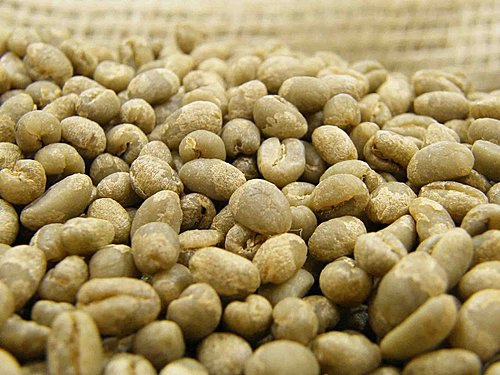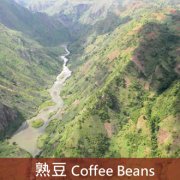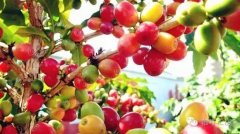Kenya multi-door PB round bean coffee flavor description Kenya native tree Arabica washed beans

For professional baristas, please follow the coffee workshop (Wechat official account cafe_style)
Kenya multi-door round bean Kenya PB Dorman Green Coffee Beans
Kenya is a model country for producing fine coffee. Kenya's high-altitude Arabica washed beans are the top coffee beans in the world. Most of the coffee beans are graded by the Kenya Coffee Bureau and sold at auction. Kenya Coffee Agency's research, development and quality management of coffee is very strict. Raising the price of coffee beans through an excellent auction system indirectly helps coffee farmers who work hard, and through education, coffee farmers update their planting techniques to produce better coffee. Kenya, which has a sour taste of BlackBerry fruit, produces less coffee. These coffee beans are derived from fine coffee farms founded in Kenya by foreign companies or acquired by Kenyan domestic companies.
Coffee beans are usually made up of two peas (commonly known as mother beans), while PB beans are in the shape of growing rice or oval (commonly known as male beans) Broog with photos compared. Kenya round beans are a variety of Kenyan beans selected by hand, and they are the most individual coffee PB beans with the most unique style and the widest roasting range, and are also familiar to friends.
In the new season, Kenya PB is native to Kenya (several Arabica species). Coffee beans are smaller and more round. Conical PB beans have high moisture content, high cohesion and strong condensation of water molecules. if you lower the end temperature, Kenya beans have very full and strong BlackBerry acid and very bright fruit aromas that stimulate plums and cherries. If you increase the end temperature of the steaming and moderately adjust the radical sharp acid to gentle and gentle, this is the best for people who like Kenyan beans.
Shallow baked City (fragrance): like Kenya PB adzuki bean special grape acid awakens people at the entrance, acid stops on the throat and saliva on both sides of the mouth, the taste is sharp and thin, and the aftertaste changes from sour to sweet plums and stops above the throat for a period of time. This tannin whose baking degree is like grapefruit skin is very strong, so it is a good description to call it a fruit bomb. Store the shallow baked PB beans in a dry place for about 7 to 9 days, allowing the acid to fade into the sweet and stable aroma of plums without irritating taste.
Roasting (general B): generally do not like too sour coffee friends we will Kenya PB beans grapefruit acid knead soft fine, the main taste of adzuki bean supple jasmine and with a smooth taste of ester, kumquat stevia sweet taste is obviously not thick and fresh, Yuyun lychee sugar cane sweet constantly spread back at the same time a little acidity along with the layer up the stack.
Re-baking (general C): after the complete end of the first explosion, a slower temperature rise can be taken to enter the second explosion, this method can fully turn caramelization to completely remove the acidity of Kenyan round beans, so that the aroma of Kenyan PB round bean raisins and the sweet and full release of honey, the taste mellow concentration is still in the smooth stage, after cooling, the finish rhyme has the special sour and sweet fruit flavor of Kenyan coffee.
Enter the full-bodied baking degree (Full-city+ or dark) because the strong acidity increases the sweetness after caramelization, and the sweetness of solid dark chocolate fills every coffee bean.
Guojia: Kenya
Product name: multi-door PB Plus
Grade: PB Plus
Treatment: washing
Varieties: SL 28, SL 34
Kenya, located in East Africa, is one of the major coffee producing countries.
More than 6 million people are engaged in the coffee industry.
Most of them are the combination of small farmers and cooperatives.
Coffee trees in Kenya are mostly planted between 1400 and 2000 meters above sea level.
The growth area includes Ruiri, Thika, Kirinyaga,
Mt. Kenya West, Nyeri, Kiambu and Muranga.
Mainly in the foothills of Mt.Kenya and Aberdare.
There are many producing areas in Kenya that strive to preserve native forest ecosystems.
Protect the natural gene pool and support the reproduction of wild coffee varieties
Breed a variety of coffee trees.
In 1930, cultivated by the "Scott Laboratories" laboratory,
The named Kenyan unique varieties SL28 and SL34 were born in such a good environment.
According to botanists in SL laboratory, SL28 and SL34 are genetic variants.
Among them, SL28 has a mixed pedigree of French missionaries, mocha and Yemeni Tibica.
The goal of cultivating SL28 in the first place
It is hoped that coffee beans with high quality and resistance to diseases and pests can be produced in large quantities.
Although the output of SL28 was not as large as expected later.
But copper leaves and broad bean-shaped beans have a great sweetness.
A sense of balance and complex flavor, as well as significant citrus, black plum characteristics.
While SL34 and SL28 are similar in flavor, except for complex and changeable acid quality.
And great sweetness at the end, the palate is heavier, fuller and cleaner than SL28.
SL34 has French missionaries, bourbon, and more Tibica ancestry.
Dou looks similar to SL28, but is more adaptable to sudden heavy rain.
It is these two important varieties that lead us to the unique Kenyan style:
Intense acidity, full-bodied taste and beautiful balance.
Flavor description:
Kenyan coffee is characterized by a unique aroma of black plum with a blackcurrant-like finish.
Important Notice :
前街咖啡 FrontStreet Coffee has moved to new addredd:
FrontStreet Coffee Address: 315,Donghua East Road,GuangZhou
Tel:020 38364473
- Prev

Rwanda-Monseha & Mushoi processing site information data Rwanda sun bourbon coffee flavor
For the exchange of professional baristas, please follow the coffee workshop (Wechat official account cafe_style) Montchamps Hamuyi processing Plant in Rwanda Rwanda West Province Mashesha CWS Natural Rwanda is a rapidly developing boutique coffee producer in East Africa, the quality of its boutique coffee is improving very fast. This batch of coffee beans is selected from Mushonyi Luther ridicule Rutsiro producing area.
- Next

Introduction of Peruvian Huning Coffee producing area Information description of Peruvian Alpine Coffee Flavor
For the exchange of professional baristas, please follow the coffee workshop (Wechat official account cafe_style) Peruvian alpine small farmers washed Peru Norte G1 this Peruvian alpine small farmers washed Peru Norte G1 from Chanchamayo, also known as La Merced, in the Junin region, located in western South America, with the Andes stretching from the north to the south. The town is located in Lim
Related
- Detailed explanation of Jadeite planting Land in Panamanian Jadeite Manor introduction to the grading system of Jadeite competitive bidding, Red bid, Green bid and Rose Summer
- Story of Coffee planting in Brenka region of Costa Rica Stonehenge Manor anaerobic heavy honey treatment of flavor mouth
- What's on the barrel of Blue Mountain Coffee beans?
- Can American coffee also pull flowers? How to use hot American style to pull out a good-looking pattern?
- Can you make a cold extract with coffee beans? What is the right proportion for cold-extracted coffee formula?
- Indonesian PWN Gold Mandrine Coffee Origin Features Flavor How to Chong? Mandolin coffee is American.
- A brief introduction to the flavor characteristics of Brazilian yellow bourbon coffee beans
- What is the effect of different water quality on the flavor of cold-extracted coffee? What kind of water is best for brewing coffee?
- Why do you think of Rose Summer whenever you mention Panamanian coffee?
- Introduction to the characteristics of authentic blue mountain coffee bean producing areas? What is the CIB Coffee Authority in Jamaica?

